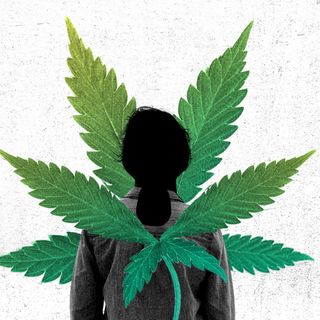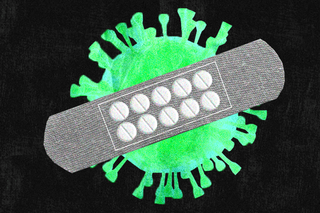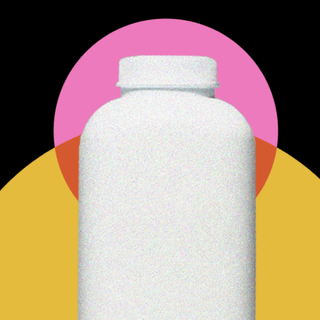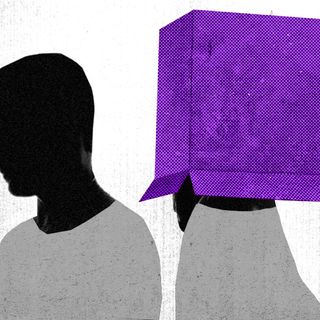
Can a Common Anti‑allergy Drug Become the Go‑To Treatment for Long Covid?
Antihistamines, an easy-to-access, over-the-counter medication may offer hope for 54 million people worldwide facing long Covid19 symptoms.

Scientists have discovered — almost by accident — that antihistamines, or over-the-counter allergy medicines, could be a potential treatment for long Covid19. Two women in California, who were reportedly living with “long Covid” or “post-Covid syndrome,” took antihistamines every day and found their symptoms significantly reduced.
Published in the Journal for Nurse Practitioners, the case report detailing the journey of the Californian women corresponds with past research around the benefits of using antihistamines to treat long Covid.
“Most patients tell us that providers have not recommended anything that has helped… If patients wish to try over-the-counter antihistamines, I urge them to do so under medical supervision,” said Melissa Pinto, first author of the study and associate professor of nursing at the University of California, Irvine.
The most common symptoms of long Covid appear to be fatigue, cough, shortness of breath, headaches, and joint pains — with fatigue being the most widely reported among patients. In the case of the first Californian woman, who is a healthcare worker and was infected in January 2020, fatigue and brain fog persisted well into June that year, which is when she triggered her dairy allergy by accidentally consuming cheese — forcing her to take antihistamines. The next morning, she “experienced improved cognition and far less fatigue.” She didn’t take the medicine again for the next 72 hours, but when her symptoms reappeared, she decided to give it another shot; it worked again.
The second woman, a middle-aged teacher, had been living with long Covid for over a year when she ran out of her usual allergy medication that helped her manage her seasonal allergies. When she couldn’t find it in the stores, she switched to a different one — to wake up to exponentially milder symptoms the next morning.
Related on The Swaddle:
An Eye Scan Could Determine if Patients Have ‘Long Covid,’ Research Shows
Last October, a study found more than half the people who have survived Covid19 are experiencing symptoms of long Covid lasting for at least six months from their initial diagnosis of the infection. It was a systematic review of 57 reports comprising data from more than 250,000 individuals — both adults and children — who were diagnosed with Covid19 between December 2019 and March 2021. People experiencing prolonged symptoms are also more likely to experience PTSD and anxiety — besides struggling with neurological disorders, a study had noted.
Kent Taylor, the 65-year-old founder of an American restaurant chain called Texas Roadhouse, died by suicide. In a statement released after, his family said he was battling “post-Covid-related symptoms, including severe tinnitus.” Twitter users began sharing their own experiences of dealing with tinnitus after recovering from Covid19 — some described it as a “form of torture“; others called it “maddening and depressing.”
Yet, despite their efforts, so far researchers have been unable to figure out why the novel coronavirus has a long-term effect on certain people — leave alone finding a treatment. Some experts have hypothesized that the scarring of lung tissues, caused by Covid19, could be behind the long-term breathing problems many patients are experiencing. Others suspect longCovid could be a result of immune systems of some Covid19 patients not returning to their former, robust state — making them vulnerable to poor health. Theories about Covid19 altering the patients’ metabolism in the long term also exist.
“Currently, there is no cure for [long Covid], only symptom management. A number of options are being tried,” Pinto said. At this juncture, the efficacy of an over-the-counter drug seems like a lucrative option. However, until studies have successfully proven antihistamines can help people across the board alleviate their long Covid symptoms — and without any side-effects too — consuming them without the knowledge or supervision of doctors may not be advisable.
Related on The Swaddle:
In the meantime, the patients are struggling not just with the debilitating symptoms, but are also waiting for the world to recognize their plight. The Swaddle’s Saumya Kalia spoke to Ambar, 23, who was infected in April last year, but continued to experience prolonged symptoms long after. “While I’m a lot better, a large part of me is still missing… Days that I would call normal [earlier], now seem to completely exhaust me… I’m reluctant to cite exhaustion from Covid as an excuse out of fear of not being taken seriously. I know many people that had their tryst with the virus but recovered completely including my parents, in contrast, it makes me wonder if I’m just being whiny,” he said.
Research on long Covid is continuing to emerge. Naturally, more studies may be required before antihistamines are touted as the “go-to” option to treat long Covid. But once proved to be useful, they can make the lives of the long-haulers significantly easier. The present study has always presented a glimmer of hope to that end.
“Patients tell us they wish more than anything that they could work and do the most basic activities they used to before they got sick with long Covid… The possibility that an easy-to-access, over-the-counter medication could ease some of the [long Covid] symptoms should offer hope to the estimated 54 million people worldwide who have been in distress for months or even years,” Pinto noted.
Until the medical community has found a “cure,” or come to agree on the best course of action to treat long Covid, Pinto has another bit of advice for the patients, “…because [healthcare] providers may not know about new potential treatments, I would encourage patients to be active in their care and consider taking research and case reports like ours to appointments with providers so they can help create a regimen that will work.”
Devrupa Rakshit is an Associate Editor at The Swaddle. She is a lawyer by education, a poet by accident, a painter by shaukh, and autistic by birth. You can find her on Instagram @devruparakshit.
Related


Johnson & Johnson’s Baby Powder Is Facing More Than 30,000 Lawsuits Globally
